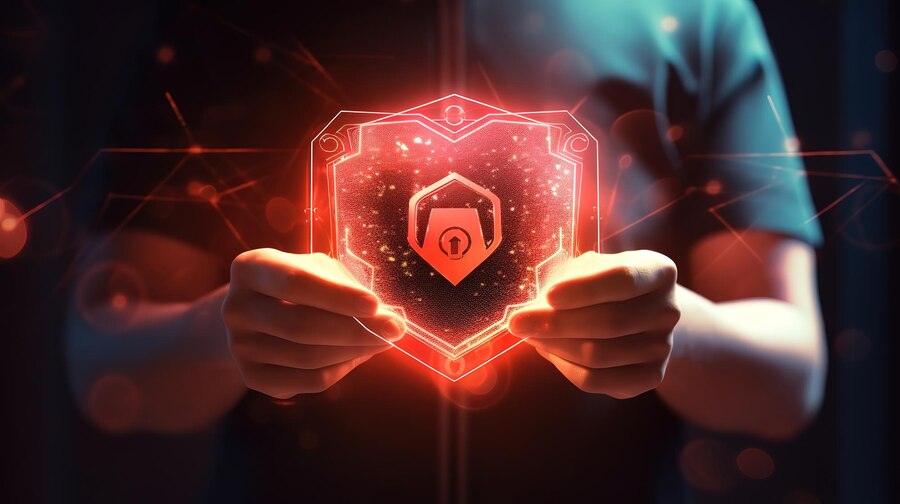As an online gamer, once you have invested in your gaming set-up, you must protect it. This is especially important when playing online games on the same network as the other computers.
If that is the case, even if you are not connected to the internet, your computer is exposed to threats just because other computers are connected.
However, you don’t have to worry as there are steps you can take to protect your computer and online games played with simple measures.
Today, the simple measure that we will discuss is using a VPN. VPN is used to mask the online presence and digital footprint. This helps protect your online activity from being tracked and invisible from any cyber threat.
Understanding The Relationship Of VPN And Gaming

The gaming world has evolved significantly in recent years, with millions of players engaging in online multiplayer games, esports, and content streaming. Simultaneously, concerns about online privacy and security have grown, prompting many gamers to explore VPN and gaming together.
Below, we will delve into the intricate relationship between VPNs and gaming, exploring the benefits, drawbacks, and best practices for achieving a seamless gaming experience while safeguarding your online activities.
What Is A VPN, And How Does It Work?
A Virtual Private Network (VPN) is a powerful tool that has gained widespread use in today’s digital age. It functions as a shield for your online activities, providing privacy, security, and the ability to access content worldwide.
At its core, a VPN is a technology that establishes a secure and encrypted connection between your device and a remote server.
When you initiate a connection to a VPN, it creates a secure tunnel. This tunnel is protected by robust encryption, converting your data into an unreadable format for anyone trying to intercept it without the decryption key.
The encryption ensures that your online activities, including browsing, messaging, and file transfers, remain confidential and secure.
One of the key functions of a VPN is to conceal your IP (Internet Protocol) address. Your IP address is like a digital address that identifies your device online and can reveal your approximate location.
When you connect to a VPN server, your real IP address is replaced with the IP address of the VPN server. This masking of your IP address adds an extra layer of anonymity to your online presence, making it difficult for websites, online services, or even your internet service provider (ISP) to trace your activities.
In practical terms, a VPN routes your internet traffic through its servers, often in various parts of the world. As your data passes through these servers, it takes on the IP address of the selected server, making it appear as though you are accessing the internet from that specific location.
This feature is useful for bypassing geographical restrictions that prevent you from accessing certain websites, streaming services, or online content based on your physical location.
In addition to hiding your IP address and bypassing geo-restrictions, VPNs offer an added layer of security when you connect to public Wi-Fi networks.
Public Wi-Fi networks in cafes, airports, and hotels must be more secure and susceptible to cyberattacks. When you use a VPN on such networks, your data is encrypted, making it significantly harder for hackers to intercept and exploit your sensitive information.
The Pros Of Using A VPN For Gaming

- Reduced Ddos Attacks: One of the primary advantages of using a VPN for gaming is protection against Distributed Denial of Service (DDoS) attacks. VPNs mask your actual IP address, making it challenging for malicious actors to target you with DDoS attacks that can disrupt your gameplay.
- Bypass Geographical Restrictions: VPNs allow gamers to access game servers, content, or exclusive releases that may be restricted to specific regions. Players can unlock a world of gaming possibilities by connecting to a server in the desired location.
- Enhanced Privacy And Security: VPNs bolster your online privacy and security, which is especially crucial in the gaming world, where interactions often involve sensitive personal information, in-game purchases, and communication with other players.
The Cons Of Using A VPN For Gaming
While VPNs offer several benefits, they also come with potential drawbacks when used for gaming:
- Latency: Latency, or the delay between sending a request and receiving a response, can increase when using a VPN. This delay may negatively affect your gaming experience, particularly in fast-paced games where low latency is essential.
- Server Location: The location of the VPN server you connect to plays a significant role in your gaming performance. Opting for a server far from the game server can increase latency and lead to a less enjoyable experience.
- Incompatibility With Some Games: Certain online games may not function correctly when using a VPN, as they employ anti-cheat measures or region-locking that can conflict with VPN usage.
Best Practices For Gaming With A VPN

To make the most of VPNs in gaming while mitigating potential downsides, follow these best practices:
- Choose A Nearby Server: When using a VPN for gaming, select a server as close as possible to the game server to minimize latency and maintain a smooth gaming experience.
- Use A Fast VPN: Opt for a reputable VPN service known for its speed and performance, as slower VPNs can exacerbate latency issues.
- Disable VPN When Not Needed: Disconnect from the VPN when you’re not gaming to prevent unnecessary latency from affecting other online activities.
- Check Game Policies: Review the terms of service for the specific game you intend to play. Some games may discourage or even prohibit the use of VPNs due to potential unfair advantages or conflicts with their policies.
Use Cases For VPN And Gaming
VPN offers several valuable use cases for gamers. They enable access to region-locked content and games, allowing players to bypass geographical restrictions and access gaming experiences worldwide.
VPNs also provide an added layer of security by encrypting data traffic protecting gamers’ personal information and financial details, which is especially important in online gaming where in-game purchases are common.
Furthermore, VPNs can help reduce the risk of Distributed Denial of Service (DDoS) attacks by masking a player’s IP address, making it harder for attackers to target them. While VPNs can introduce some latency, they can also be used strategically to minimize ping and lag in online gaming by connecting to servers closer to the game server’s location.
Whether enhancing privacy, accessing early releases, or protecting against DDoS attacks, VPNs have become a versatile tool for gamers to optimize their gaming experiences.
Like What You’re Reading?
Sign up for Tips & Tricks newsletter for expert advice to get the most out of your technology
Conclusion
The relationship between VPNs and gaming is multifaceted, offering advantages and disadvantages. Gamers must consider their specific needs and gaming preferences before using a VPN.
By understanding the potential impact on latency, server selection, and game policies, players can harness the power of VPNs to enhance their gaming experience while keeping their online activities private and secure.
Whether you’re exploring new gaming horizons or aiming to achieve a competitive edge, a well-informed approach to VPN usage in gaming can unlock a world of possibilities.
Read Also:




























